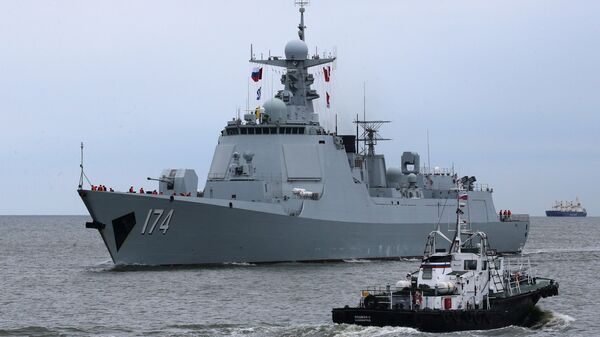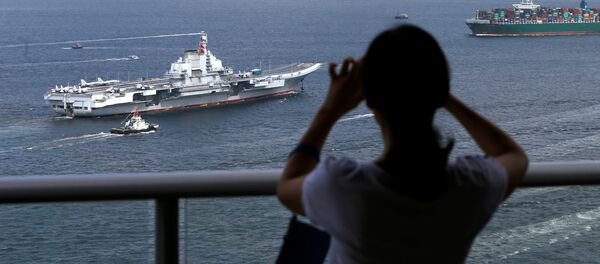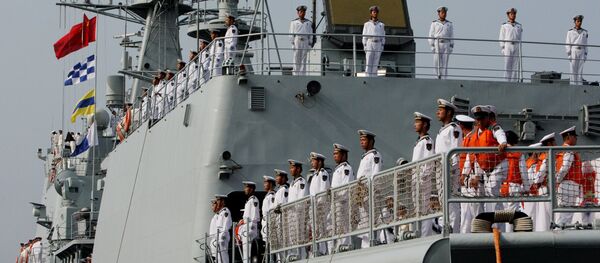The two-stage coastal and active sea stage Maritime Cooperation-2017 drills which began late last week will continue until July 28. On Friday morning, Russian Navy officially welcomed the Chinese warships, which include the guided missile destroyer Hefei, the frigate Yuncheng and the supply ship Lomahu, at the Russian Baltic Fleet's base in the seaport town of Baltiysk.
The Russian side committed two Steregushchiy-class corvettes – the Steregushchiy and the Boikiy, a rescue tug, Ka-27 shipborne helicopters, Su-24 tactical bombers and An-26 military transport aircraft to the exercises. The drills will include anti-ship, anti-sub, and anti-aircraft defense, search and rescue and anti-piracy.
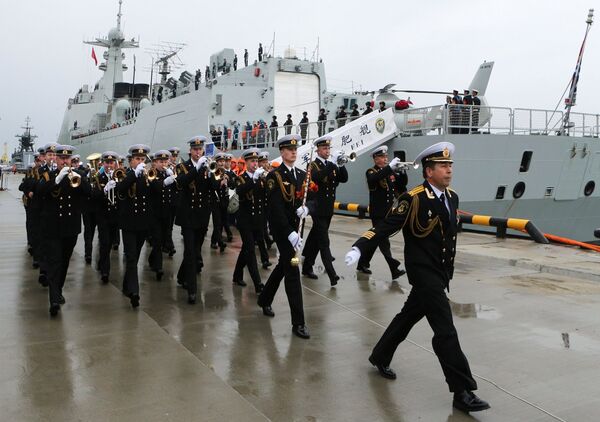
Ahead of the drills, US European Command issued a statement saying that it would be "closely tracking Russian exercises with other participants, like China. While we support their rights to train in international commons, we expect all nations adhere to international norms and laws." NATO Secretary General Jens Stoltenberg echoed the US military's approach, saying earlier that the alliance would monitor "all military activities around NATO territory and…close to our territorial waters very closely."
Commenting on the US and NATO officials' remarks, Konstantin Sivkov, a military observer and director of the Academy of Geopolitical Problems, told Sputnik that NATO and the US should feel free to 'closely monitor' the Russian-Chinese maneuvers "until they go blue in the face." Doing so wouldn't change anything, the expert stressed.
Last week, as the three Chinese warships crossed Danish waters on their way to the Baltic Sea, Danish international affairs observer Flemming Splidsboel Hansen told Danish media that the Russian-Chinese exercises carry an "aggressive" character, and mark a new escalation in Moscow's conflict with NATO.
Igor Korotchenko, editor-in-chief of National Defense, a Russian military affairs magazine, told Sputnik that Hansen's remarks echo the policy of the leaders of the US and NATO, "who are not used to the idea that someone other than themselves can have their own national interests in various territories or sea areas around the world."
In other words, Korotchenko stressed that "Russia and China will conduct exercises wherever they find it necessary to do so, and will not consult with anyone about it. China is acting in full accordance with the norms of international law, and conducting exercises wherever its interests require it. In the current case, their interests coincide with Russia's national interests…So Denmark, and NATO as a whole, should calm down. They cannot influence these processes anyway. If they want to be hysterical…they can do so. But this will have no impact on Moscow and Beijing's sovereign decisions."
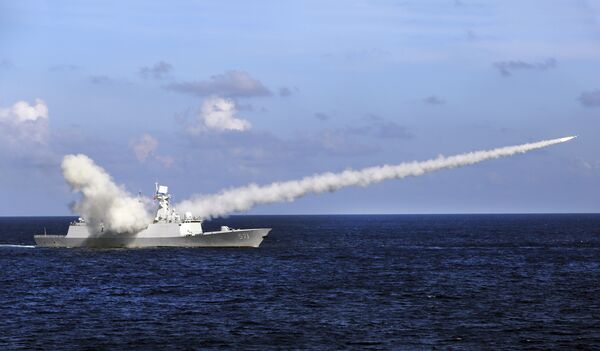
Yang Mian, an expert at the Center for International Relations at the Chinese Institute of Communications told Sputnik that the joint drills are strategically significant for both countries, and carry a special importance for the Chinese Navy.
"The trend for the development of Chinese-Russian relations has been excellent in recent years, and favorable progress can be noted in military cooperation, as well," the analyst said. "Earlier, the two countries conducted drills in various areas of the Pacific Ocean. This time, the joint exercises in the Baltic Sea reflect the close cooperation between the two countries in the military sphere – their mutual strategic support for one another."
Finally, Yang noted that it was significant that "the Chinese Navy is…coming out into the deep blue sea – in the world oceans. The focus is on sea cruises on a global scale – on the development of the capabilities for military training. The Baltic Sea is a distant frontier for China; this is a good opportunity for training for the Navy."
